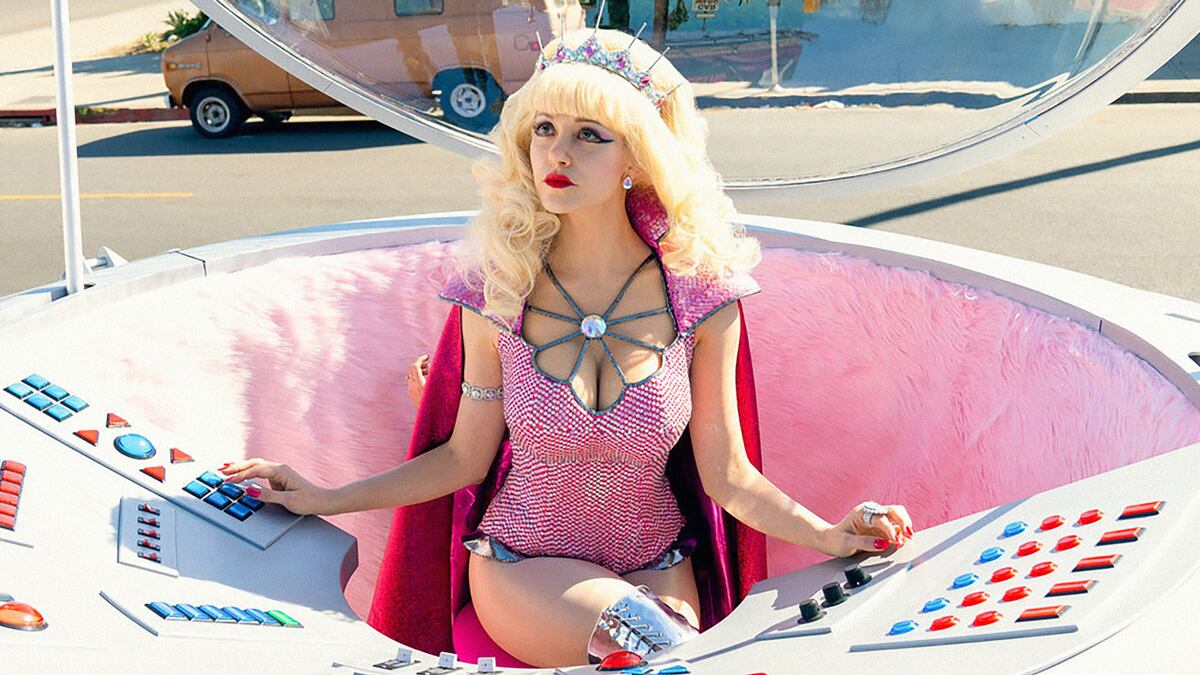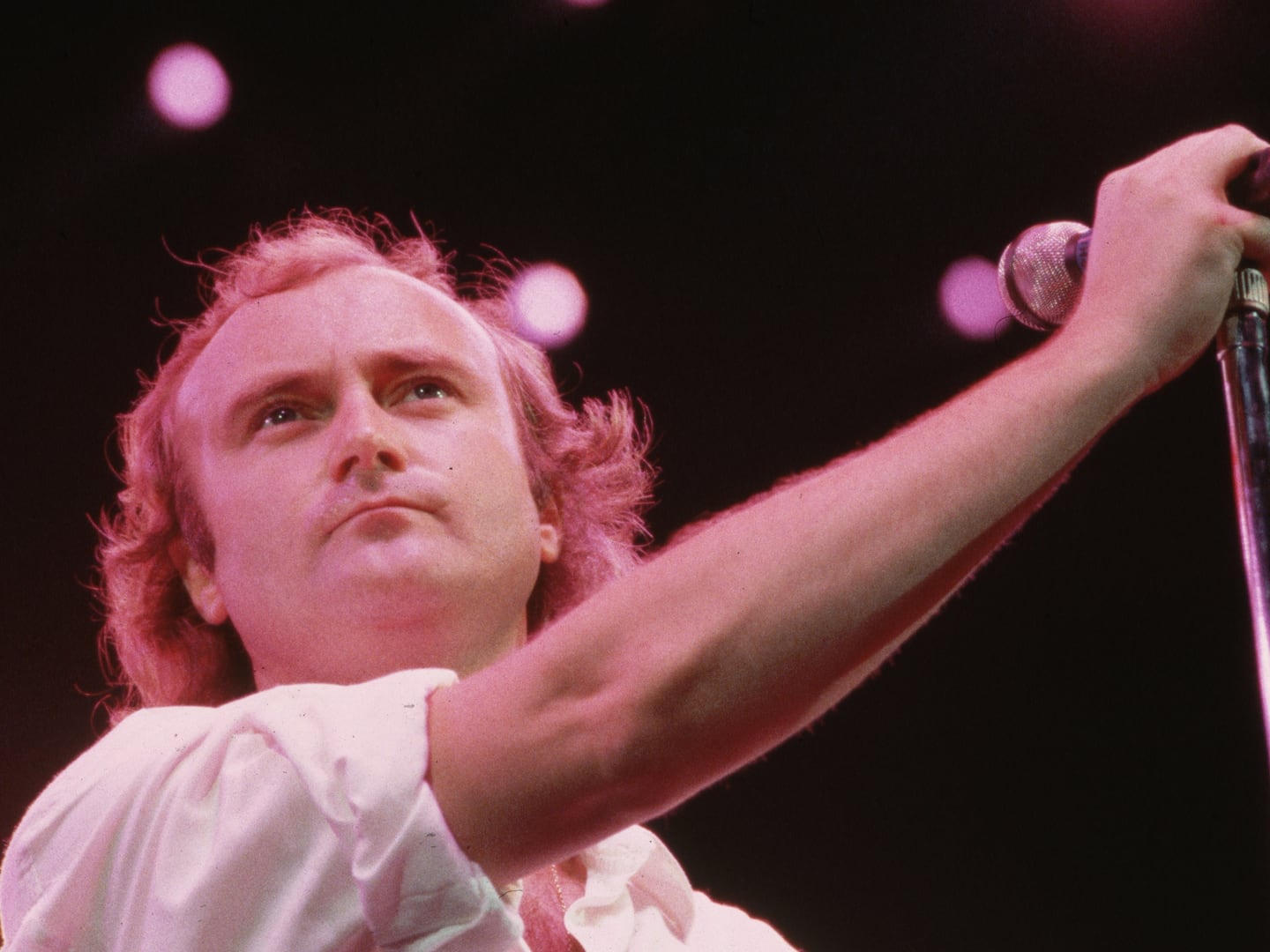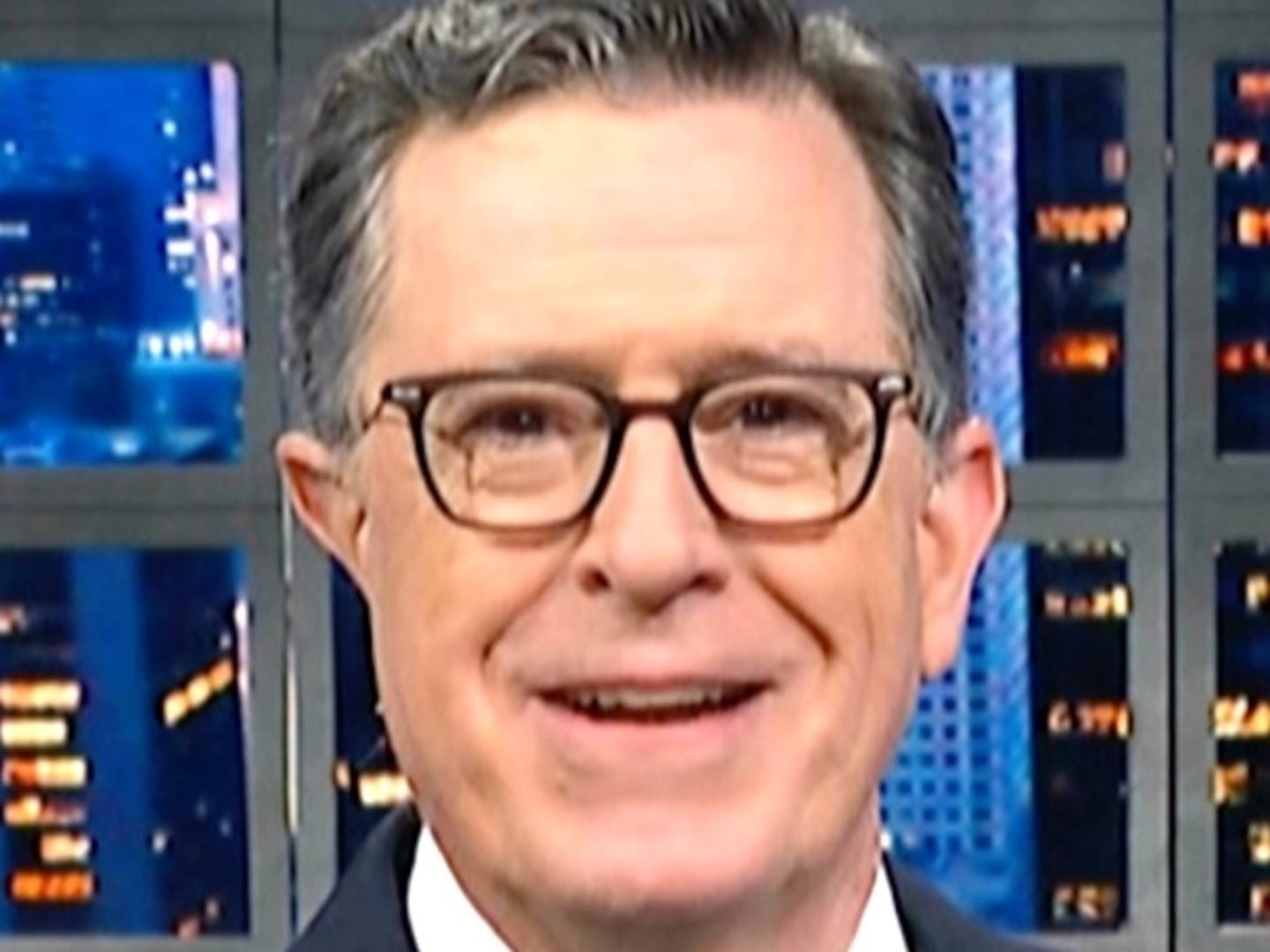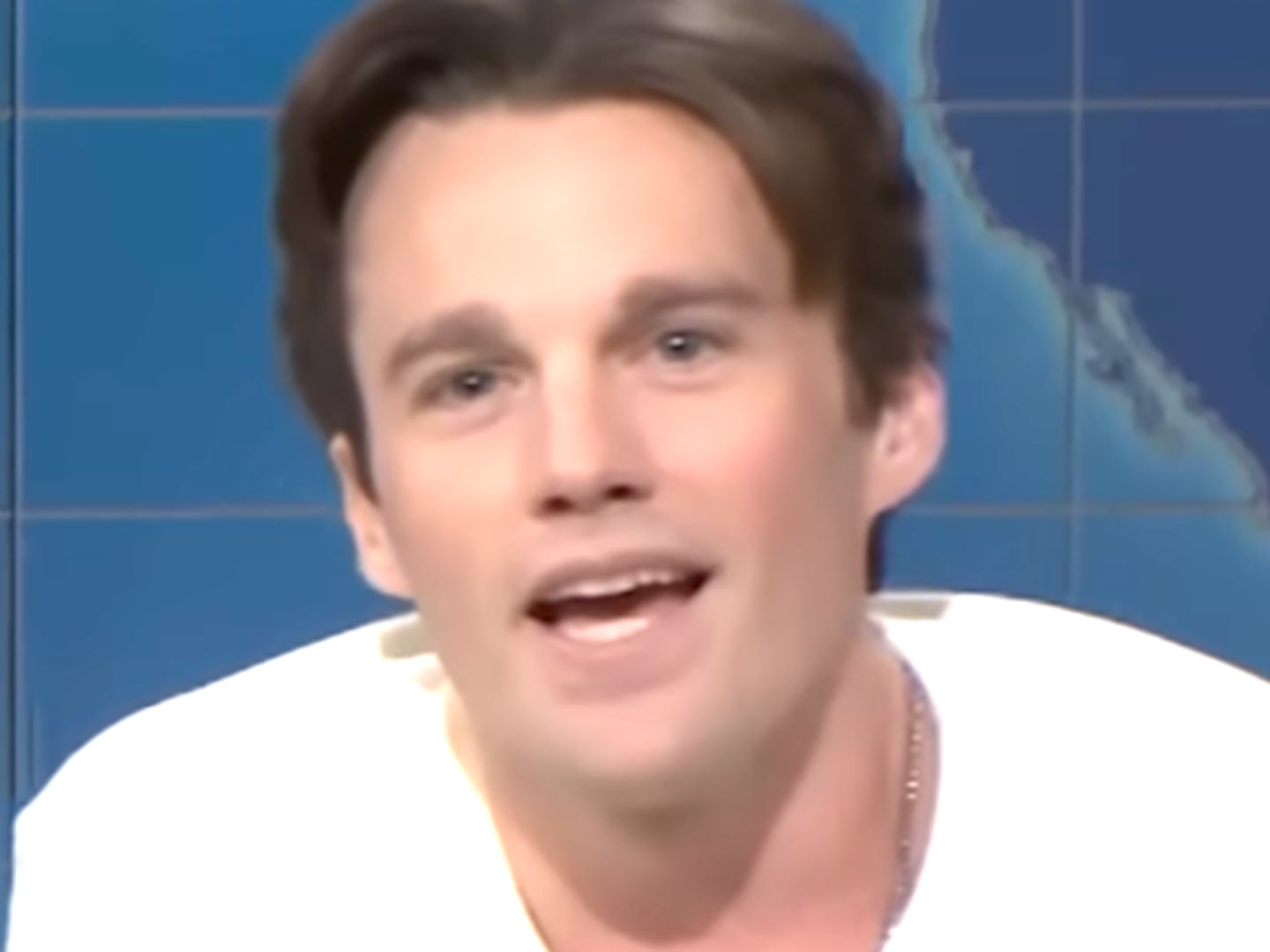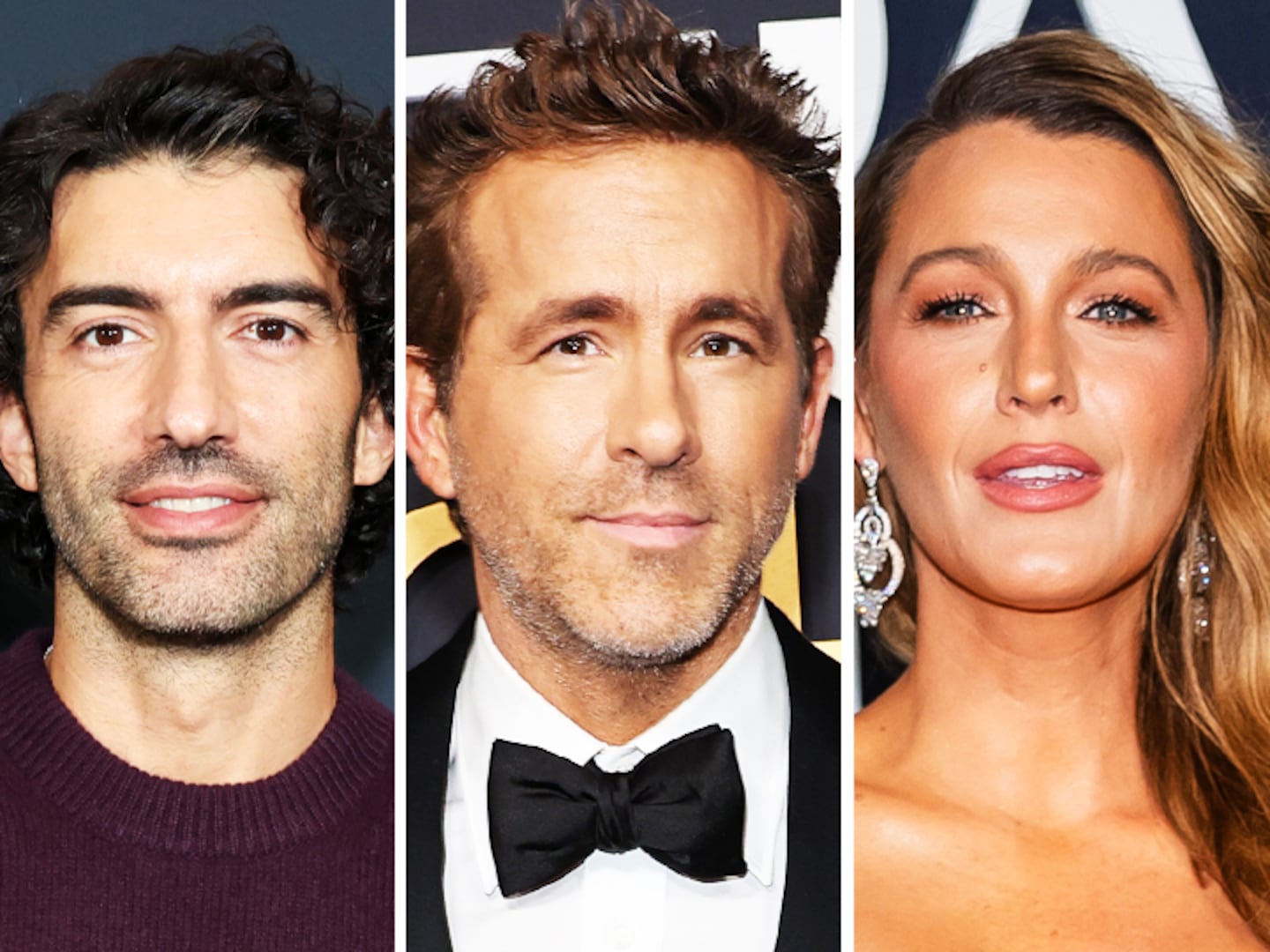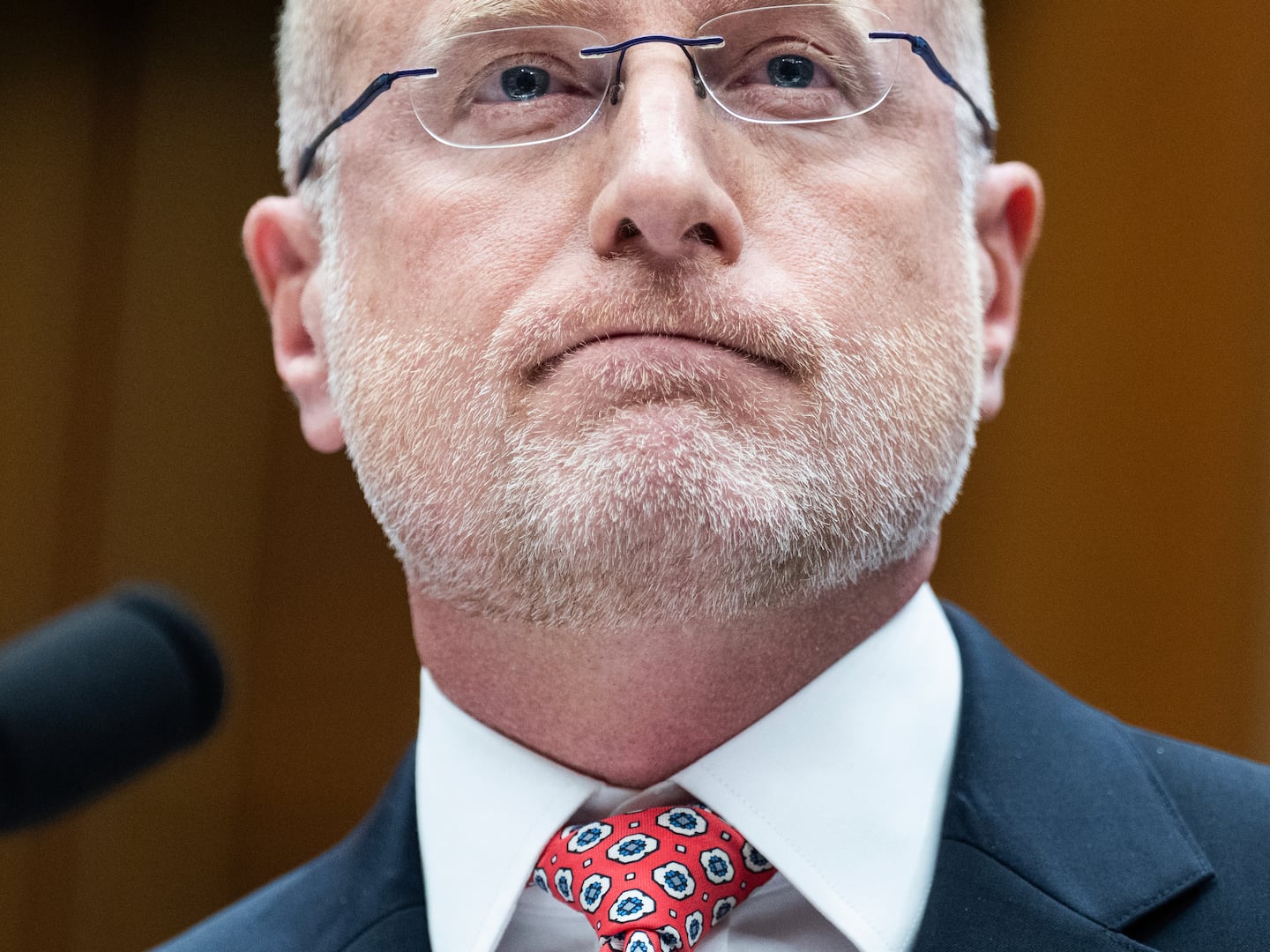Like a spaceship come to Earth, beaming down a bright pink light onto the world when we need it most, Angelyne has landed on Peacock, two whole years after its first teaser trailer professed it would be “streaming soon” as part of the then yet-to-be-launched streaming platform’s first batch of exclusive programming.
The five-episode limited series—which stars Emmy Rossum as the eponymous Los Angeles billboard blonde bombshell—is intentionally designed to not be a straightforward biopic. Instead, it opts to tell the story of Angelyne as a murky journey through fact and fiction that is as puzzling and captivating as the woman herself.
Long before the rise of the socialite—prior to Kim Kardashian popping up around Hollywood with Paris Hilton, and certainly preceding the first TikTok dance trend Addison Rae ever uploaded—Angelyne was famous for being famous. She created an aura of mystique in the City of Angels. Her face popped up on billboards emblazoned with her name in all of the city’s most high-traffic areas, and she drove around all day in a pink Corvette, waving to people at traffic stops and signing autographs for anyone who asked.
She seemed genuinely thrust from outer space. Suddenly an entire city was saturated with the face of someone who had no film credits, no television roles, no modeling contracts, and no hit songs. It remained that way for decades. Even those closest to her knew little about her life before the billboards, until a 2017 Hollywood Reporter story revealed the truth behind Angelyne. But it did little to curb Angelyne’s long-cultivated sparkle. She’s an enigma whose shine is so bright it cannot be reduced by reasonable deduction.
Angelyne, like its namesake, is whatever you want it to be.
Where most biographical works seeks to illuminate their subjects and reveal their true nature, warts and all, Angelyne instead throws the rule book out the window, trading it for a copy of Angelyne’s self-published Hot Pink! magazine. It partially surrounds the Hollywood Reporter piece but is ultimately guided by its own mythos. It’s all led by an astoundingly transformative performance from Emmy Rossum, who commands the attention of everyone in her path the exact same way Angelyne did: with such a fierce commitment to a character, you begin to wonder if she’s playing a character at all.
Though her career has been long and her performances have been well-received by critics, Angelyne was still a risk for Rossum. She left Showtime’s Shameless in 2017 after nine seasons, just after she had optioned the story for Angelyne, and made the project her “complete and singular” focus for the next four years.
She spent hours in the makeup chair, got blisters from her breastplate, had tear duct issues from the contact lenses, and worked on the character’s unique physicality and unmistakable voice for months. But her dedication pays off in droves across the series’ five episodes, as Rossum transforms again and again—sometimes only incrementally, with an added prosthetic wrinkle or two—playing Angelyne from her teenage years in the late 1960s all the way up until now.
Rossum’s Angelyne is charming but coy, effervescent but elusive, promiscuous but puritanical. Well, that is, if you’d count the art of the tease as promiscuity. Rossum’s Angelyne would not, she’d simply claim it as part of her genius quest for power. “Seducing a man…is the most effective way a woman can control a man,” Angelyne posits in a breathy whisper in one scene. “And once you control them, you take the power back. And that is what I did with that first billboard: I seduced an entire city, and I took the power back.”
The series has a way of taking statements like these that, normally, might invite some friendly debate about the truth of their nature and instead making them seem like biblical scripture. Angelyne lives to tease and seduce, to use the 200-foot tall image of herself emblazoned across billboards to make the world believe whatever it was she wanted them to believe. “She knew the power of her image, and that’s why she had so much control over it,” Rossum told The Hollywood Reporter.
In a pivotal scene in the series’ third episode, Angelyne takes a meeting with Hugh Hefner, former editor of Playboy and infamous manipulator of women for decades. Hefner begins the meeting by telling Angelyne she has a unique, Marilyn Monroe quality about her.
“I know, Marilyn is my art mother of sorts,” Angelyne says in response, “I also know that she never gave you consent to use her photos. You bought them from another man who paid her pennies to take them several years earlier because she needed to make her car payment, and then you used them to launch your empire. And voila! You are a multimillionaire…and she’s dead.”
The scene is a welcome serving of truth from a woman who preferred to ice-skate around truth at every other turn. It’s one big tease, Angelyne dangling herself in front of the ultimate symbol of male chauvinism to exert her power and her knowledge that she alone is in command of her own image, payday be damned.
“It sounds like you’re trying to get me to take my clothes off and give you my story so you can sell more copies of your magazine,” she continues moments later. “If you want the story of my life, it’s on a wall at the corner of Hollywood and Vine. It’s hard to miss.”
Emmy Rossum’s campaign for her Emmy nomination (#AnEmmyForEmmy, let’s get this started!) should be tied up here. This scene alone is some of the best work of her career thus far. It’s searing and fiery, an unforgettable display of the power of the feminine. Angelyne never needed to roar; she could say just as much with her trademark coo.
Rossum’s Angelyne is also just as dryly funny as the real-life icon. At one point, Angelyne strolls into an office for a business meeting half an hour after it was supposed to start (something Rossum did to Peacock execs dressed in full character in real life). Instead of relying on her bust size alone to charm the men, she offers a faux compliment about their names with a purr. “Louuuu and Shellldon, such strong names.”
It’s quietly hysterical to see Rossum flirt her way through a total throwaway joke with such ease, but it’s a testament to how closely she embodies the out-of-this-world charm of her subject: Lou and Sheldon are the least “strong” names I could possibly think of, but Angelyne would’ve made it sound like they were the only names in the world.
Occasionally, Angelyne will take a big swing that doesn’t always connect. There are dreamy sequences that appear almost out of nowhere and serve no purpose in enhancing the story at hand. But they still manage to deepen the surreal and mysterious idea of who Angelyne is.
Even the most out-there of fantasy sequences work in tandem with the show’s non-linear nature, with its faux documentary-style character confessionals and constant time jumps spinning Angelyne into a wholly original enigma. The occasional fantasy sequence serves to lift the show back up into the ether once it gets too close to being grounded. A tale of Hollywood, a city that’s as fabulous as it is phony, should never feel too based in reality. There is no one experience in L.A. that matches another, and Angelyne’s is undoubtedly one of a kind.
But Angelyne’s own opinion of the series has wavered over time. Initially, she was courted by Rossum and eventually agreed to sell the rights to her story, image, and songs. Rossum even shared a picture of herself with Angelyne in February 2020, just as the show was beginning production, saying that she was “so excited to be able to share that the embodiment of L.A. itself, the original Queen of the Universe, is the executive producer of our show!” After the pandemic delayed production, Angelyne eventually bowed out of her behind-the-scenes involvement and was not credited as a producer on the series.
Based on the show’s portrayal, her disapproval after the fact is a distinctly Angelyne move.
In Angelyne’s back half of episodes, she spends a good portion of her later life stringing along a doe-eyed young documentarian trying to make a film about her and leading reporters trying to tell her story on wild journeys through tchotchke shops and new age spirituality. She never wants anybody else’s idea of her to be the definitive one, but she’ll be happy to contribute just enough detail about herself to anyone who asks. It’s her attempt to maintain her endless mystery and the control over the ever-changing perception of her identity.
Angelyne plays with reality in a way that’s fun and somehow never frustrating. We don’t quite ever know which bit is the truth, but Angelyne has no intention of truth. It just wants to be as surreal and enigmatic as its mysterious subject was in real life. Rumors of Angelyne’s life and origins swirled around L.A. so much that the story of her background would be different depending on who you stopped on the street to ask. It’s only appropriate that the show feels just as impossible to pin down.
An initial press release described Angelyne as a show about “fame, identity, survival, billboards, Corvettes, lingerie, men, women, women teasing men, men obsessed with women, West Hollywood, crystals, UFOs, and most importantly of all, the self-proclaimed Rorschach test in pink, glow-in-the-dark queen of the universe.” And while it is about all those things, it’s about so much more. Dreams, stardom, family, consent, autonomy, power, music, metropolitan geography, the power of marketing, bubble baths, big boobs, bigger ambition, and Emmy Rossum acting her ass off—just to name a few.
The list can go on and on, and anyone who immerses themselves in all five episodes of the fantasy of Angelyne will surely fire off a different selection. That’s the beauty of Angelyne, it’s a show as perplexing as the blonde billboard babe at the heart of it. Here, fantasy and reality clash as much as pink and leopard print, but somehow come together in a state of unreal symbiosis. That’s what makes it one of the greatest, and most accurate, stories about Hollywood ever told.

